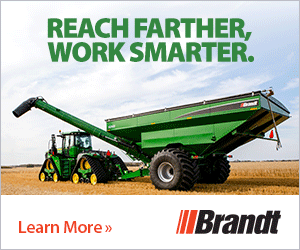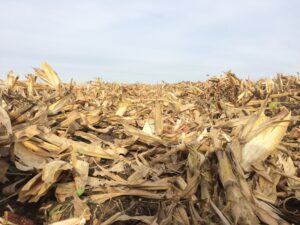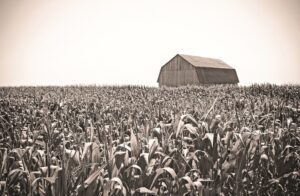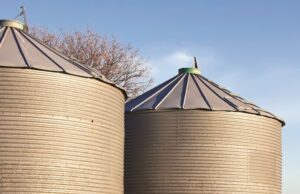Keep vigilant
SO EVERYONE COMES HOME SAFE
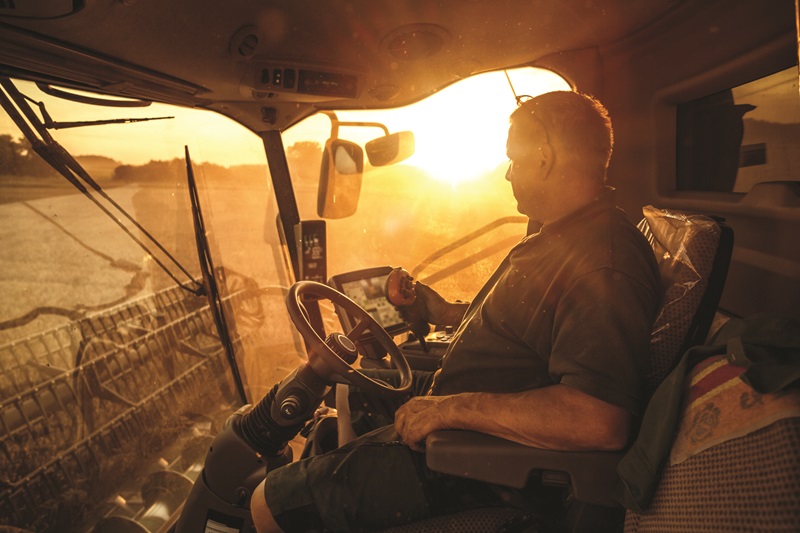
WITH GRAIN HARVEST UNDERWAY ACROSS ONTARIO, NOW IS A GOOD TIME TO REMIND FARMERS TO THINK ABOUT SAFETY PRACTICES. Ryan Dick, health and safety consultant at Workplace Safety and Prevention Service (WSPS), and Andreas Jampen, president of the Dundas Farm Safety Association (DFSA), shared their tips to ensure fellow farmers, their families, and their employees stay safe at a very hectic time. Dick says to “take the time now, ahead of harvest, to create a plan for the season. Don’t take risks.”
SAFETY STARTS WITH TRAINING
Supervisors need proper health and safety training and be aware of their responsibilities in that role and the hazards staff may encounter. They can, and have been, found criminally responsible when accidents have occurred. Staff should have appropriate training for their duties and the type of equipment used; training courses are available in-person and online.
BINS AND SILOS
When considering safety around grain bins and silos, Dick says to treat them like confined spaces and follow the Confined Space Guidelines set out by the Ministry of Labour’s website. He recommends farmers:
- Develop an emergency plan
- Use a tie-off harness
- Wear proper personal protective equipment, including respiratory and hearing protection
- Work in pairs
- Check for silo gas
- Be aware of local, accessible entrapment cages (Jampen says he knows of at least four elevators in his area that have them on-site); encourage your local fire department to take training for safe entrapment rescues
AUGERS
- Do not step over them; walk around the equipment
- Leave all guards in place
- Wear tight-fitting clothes
FIRE RISKS
Combine and baler fires are not uncommon, so an appropriately sized fire extinguisher should be on board; the tank pressure and the hose should be checked regularly. Having a piece of tillage equipment hooked up and ready to use during harvest can help slow down or stop the spread of fire in a field by turning under the dry crop and creating a barrier for the fire.
KEEP CONNECTED
Cell phones or smartphones can be lifesaving on the farm.
- Ensure everyone is aware of important phone numbers
- Keep 911 numbers for all properties (owned, rented, and custom work) and phone numbers in the cab of all equipment
- The ‘what3words’ app can help first responders find you in an emergency situation
If you are working in fields that don’t have a 911 number, speak to your municipality about Farm 911: The Emily Project. This project was created to encourage municipalities to provide 911 signs for entrances to vacant rural properties.
THERE’S AN APP FOR THAT!
What3words was created to assist first responders in finding people in distress more easily.
The developers have divided the world into three-metre squares and assigned three words to each square. While having a 911 number for a property can direct emergency personnel to an area, it doesn’t tell them where on the property you are located.
The app works by using a satellite signal, so minimal phone service is needed. In Ontario, the Ontario Provincial Police and many fire departments use this app. Check out what3words.com for more information.
ROAD SAFETY
When asked what he sees as one of the biggest safety issues at harvest time, Jampen says it’s road safety. With farms more spread out and increasing populations in rural areas, the reality is farmers are spending more time than ever sharing the road with other drivers. Jampen and Dick shared their road safety considerations:
- Follow the Highway Traffic Act, including stop signs, traffic lights, turning, distracted, careless and impaired driving, etc.
- Ensure all equipment has proper lighting and use them! Magnetic flashing lights are available for use on towed equipment
- Ensure proper safety equipment is installed and used (i.e. safety chains, brakes)
- Keep windows clean
- Attach a slow-moving vehicle sign to all equipment that has a maximum speed of 40 kilometres/hour
- Drivers must be at least 16 years of age and not prohibited from operating a vehicle by the courts
- Towing vehicle must be appropriately sized for the load
- Secure loads
- Be aware of what is behind you and avoid left-hand turns if possible.
Road safety during harvest season is so concerning that the Government of Ontario passed the Harvest Season Road Safety Week Act, 2023. The Act was put into place to help prevent accidents and save lives. The Act states raising awareness of the fall harvest season for those travelling on Ontario’s rural roads is imperative.
Jampen also recommends farmers keep a copy of the Farm Guide – Farm Equipment on Ontario’s Highways in their tractor, available for download from www.ontario.ca.
CHILD SAFETY
A farm is a great place to raise children but also extremely dangerous. Placing young children in daycare away from the farm is the best way to ensure their safety, but it is not always possible. The following are tips to keep children safer on the farm:
- Make sure everyone working on or around the farm is aware children may be present and should use extreme caution while moving equipment
- Assess the farm daily for potential risks
- don’t just assume if everything was fine yesterday that it will be today
- Dress them in high-visibility colours so they are easier to see
- Do not leave children in a running piece of equipment; they can accidentally turn things on or put equipment into gear
- Make sure they are aware of the dangers of PTO shafts and augers and to stay far back
- Keep them out of gravity boxes and other areas where flowing grain can entrap them; check gravity boxes or carts before unloading
- Tablets, phones, and handheld devices can be a great way to entertain children, but make sure they are aware of their surroundings while using them
- NO means NO when it comes to safety around the farm – it’s a matter of life or death
STAYING ALERT
Dick reminds farmers that fatigue is a big issue, so get adequate rest.
Jampen sums it up best – “Be vigilant and pay attention!”
For more farm safety tips and training programs for employees, visit www.wsps.ca or https://casa-acsa.ca. •


